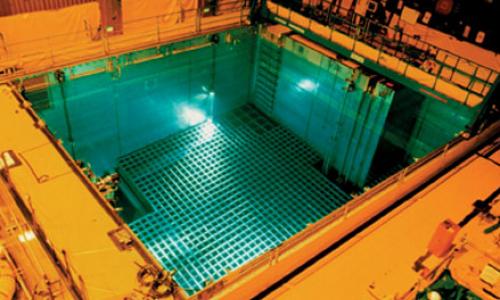The challenge of making nuclear power safer doesn't end after the power has been generated. Nuclear fuel remains dangerously radioactive for thousands of years after it is no longer useful in a commercial reactor. The resulting waste disposal problem has become a major challenge for policymakers.

Dry casks are a near-term solution
Spent fuel pools at nuclear power plants, intended to house nuclear waste only until it is cool enough to be transferred to permanent storage, have become dangerously overcrowded as the search for a permanent repository has stalled. UCS experts are recommending that spent fuel should be transferred to dry casks as soon as possible to reduce this safety hazard.

Repositories are a long-term solution
The Nuclear Waste Policy Act of 1982 dictated that the federal government would identify a permanent geological repository—a long-term storage site—and begin transferring waste from nuclear power plants to that repository by 1998. A decade and a half after that deadline, the search for a repository site has stalled, with no resolution likely in the near future.
Reprocessing isn't a solution
Some experts cite reprocessing as a partial solution to the nuclear waste issue. Reprocessing separates nuclear waste into component materials, including plutonium, which can then be re-used as nuclear reactor fuel—but also as the raw material for a nuclear weapon. UCS opposes reprocessing because it increases proliferation and terrorism risks while actually adding to the waste problem rather than reducing it.






